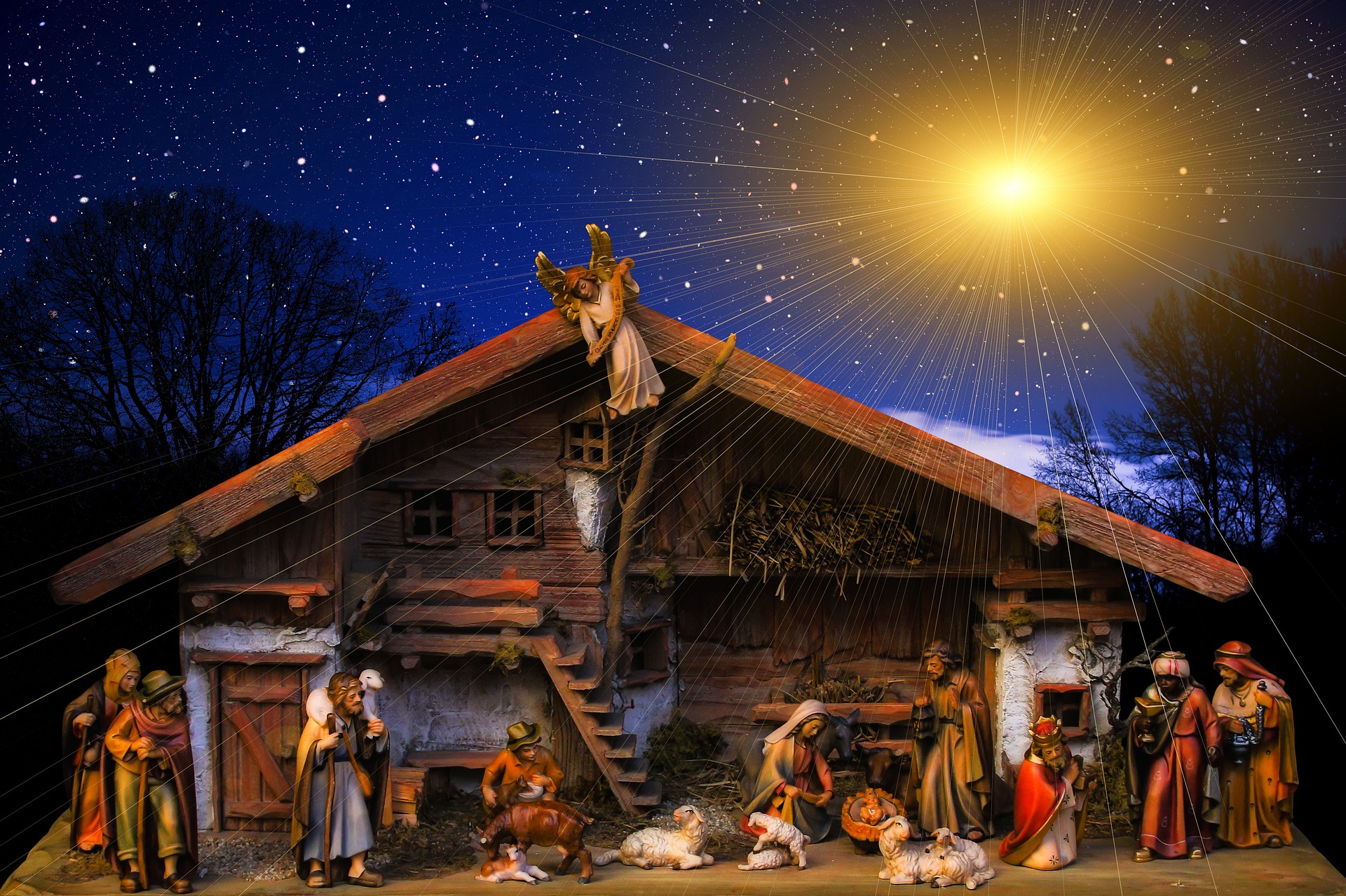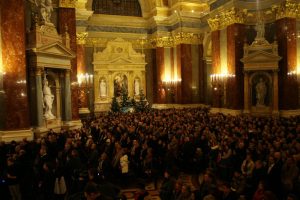
According to a survey, the excitement of getting ready for Christmas is the second most important joy of the festive season.Continue reading

Every year, people look forward to the Christmas season, when everyone tries to spend the holidays with loved ones, enjoying a delicious Christmas dinner or lunch, decorating the tree, and putting presents underneath. For Christians, Christmas has a special significance because it is the time when Jesus Christ was born.
Although in today’s fast-paced and globalized world, Christmas is often a time of a lot of presents and the hustle and bustle, for Christians it is also a time of quiet reflection. Christmas is preceded by the 4-week Advent period, which provides an opportunity to get in the mood for the holidays.
Christmas is a time when the Christian world commemorates the birth of Jesus, and in Hungary the celebrations begin on 24 December, Christmas Eve, unlike in the Anglo-Saxon world where Santa Claus arrives on the morning of 25 December.
For Hungarians, this is the time when families get together and give presents to each other, and many people decorate their Christmas trees.
In the old traditions, Christmas Eve was a time of vigil, fasting and prayer. Christmas is celebrated in Western Christianity on 25 December and in the East on 7 January, and next to Easter, it is Christianity’s second largest theological feast.
As Cardinal Péter Erdő said last year, Christians had a duty to share the hope and serenity they drew from their faith with others, adding that they drew their faith and courage from God’s coming into the world. “God did not just join us, but became a fetus, a child for our sake,” Erdő underlined.
The Reformed Church also celebrates Christmas, and according to Zoltán Balog, the head of the Synod of the Hungarian Reformed Church, “a characteristic of Christian holidays is that the harder the outside circumstances, the more in tune we can be with their essence.” This is especially true in this season, when a war is going on in our neighborhood, and economic prospects are gloomy, with an energy crisis currently experience by Europe.
“Christmas and our meeting with Jesus can once again bring light into our lives”, according to the words of Bishop Tamás Fabiny, the head of the Evangelical Lutheran Church in Hungary. He said earlier that “Christians believe that God does not abandon us even when we are at our lowest because he is the God of heights and depths”.
An essential part of Christmas is the midnight mass on the night of 24 December, celebrating the eternal birth of Jesus.
In Hungary, churches fill up at the time of midnight mass, people have not left religion and their faith in God behind.
In many churches, a mass is also held at 10 p.m., so that those who find midnight too late can still attend, and so that more worshipers can be welcomed.

St Stephen’s Basilica in the heart of Budapest regularly fills to capacity on Christmas Eve for the midnight mass.
Regarding Hungarian traditions, folk customs include the nativity scene and the setting up of the nativity manger. This year, a carefully carved wooden nativity scene was set up in front of the Parliament building which is a collaboration between artists from the mainland and beyond the border. The artwork can be viewed until the Epiphany, and next to it, people can also take a look at the country’s Christmas tree.
As mentioned above, Hungarians gather with family for a festive dinner on Christmas Eve, 24 December. Traditional dishes include fish dishes such as fish soup or fried carp, and a traditional Christmas roll called ‘bejgli’ (walnut or poppy seed roll) and stuffed cabbage are also commonly featured.
Hungarians prepare for the holiday days or weeks in advance, trying to buy the ingredients in the shops, or even pre-order them. As fish is a central part of the Christmas menu, demand for it always soars this time of the year, but Hungarians had no need to fear this year either, there was enough carp, the most sought-after fish. According to a report by the Minister of Agriculture, everyone can find something for the Christmas table in the shops. Minister István Nagy stressed that the Christmas period is a crucial time for fish consumption in Hungary. It is estimated that fish producers sell 40 percent of their annual stocks during the holiday festivities, and for some large fish producers, Christmas fish sales account for 60-70 percent of their annual turnover.
Although most people dream of a white Christmas, there have been hardly any examples of this in Hungary in recent years. As it turns out, this Christmas will be no exception, and after the frosts of the past few weeks, we can expect a mild holiday, with temperatures of up to 10 degrees during the day.
Featured photo via Pixabay; bazilika.biz.hu